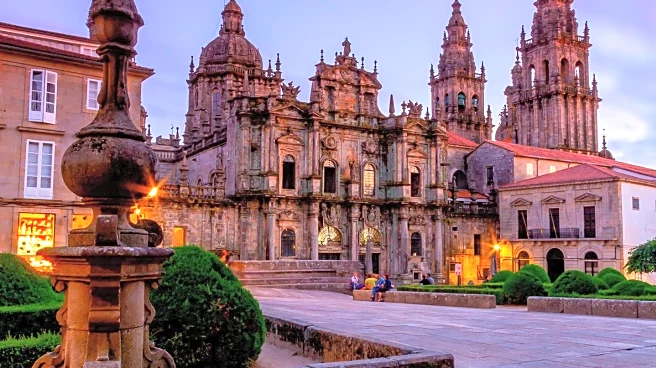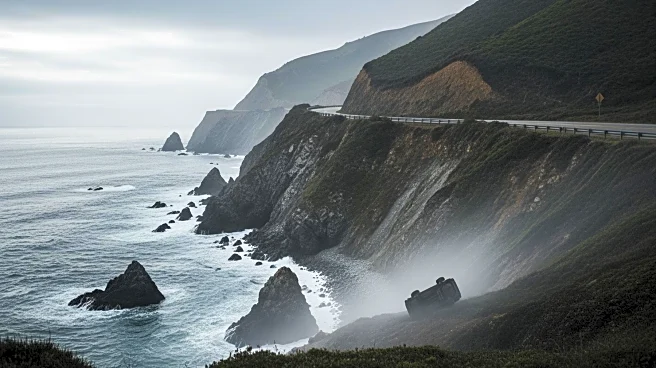What is the story about?
What's Happening?
Santiago de Compostela, a historic city in northwestern Spain, is experiencing significant overtourism, primarily driven by pilgrims visiting the famous Camino de Santiago. The influx of tourists has led to a housing crisis, with short-term rentals driving up rent prices by 44% from 2018 to 2023. The city council has enacted a ban on Airbnb-style accommodations in the historic center to mitigate the impact on local residents. Despite these measures, the number of pilgrims continues to rise, with a record half-million people trekking the routes last year, exacerbating the housing shortage and transforming the community dynamics.
Why It's Important?
The situation in Santiago de Compostela highlights the broader issue of overtourism affecting historic cities worldwide. The increase in short-term rentals has made housing unaffordable for many residents, leading to protests across Spain. This dynamic is not unique to Santiago, as other cities like Barcelona and San Sebastian face similar challenges. The economic model centered around tourism is increasingly being rejected by locals, who are witnessing their communities change drastically. The issue underscores the need for sustainable tourism practices that balance economic benefits with the preservation of local culture and affordable housing.
What's Next?
Santiago de Compostela's city council is working to enforce regulations against illegal tourist accommodations. The regional government may classify the area as a high-pressure zone, similar to other Spanish cities, to help control rent increases. As the number of pilgrims is expected to set another record this year, local authorities and community groups will likely continue to seek solutions to manage tourism's impact. The ongoing debate over tourism's role in the city's economy and community life will persist, with potential policy changes aimed at achieving a sustainable balance.
Beyond the Headlines
The overtourism in Santiago de Compostela raises ethical questions about the preservation of cultural heritage and the rights of residents. The transformation of historic areas into tourist-centric zones can erode the spiritual and cultural significance of places like the Camino de Santiago. The challenge lies in maintaining the city's identity while accommodating global interest in its historical and spiritual significance. Long-term solutions may involve redefining tourism strategies to prioritize local needs and cultural preservation.














